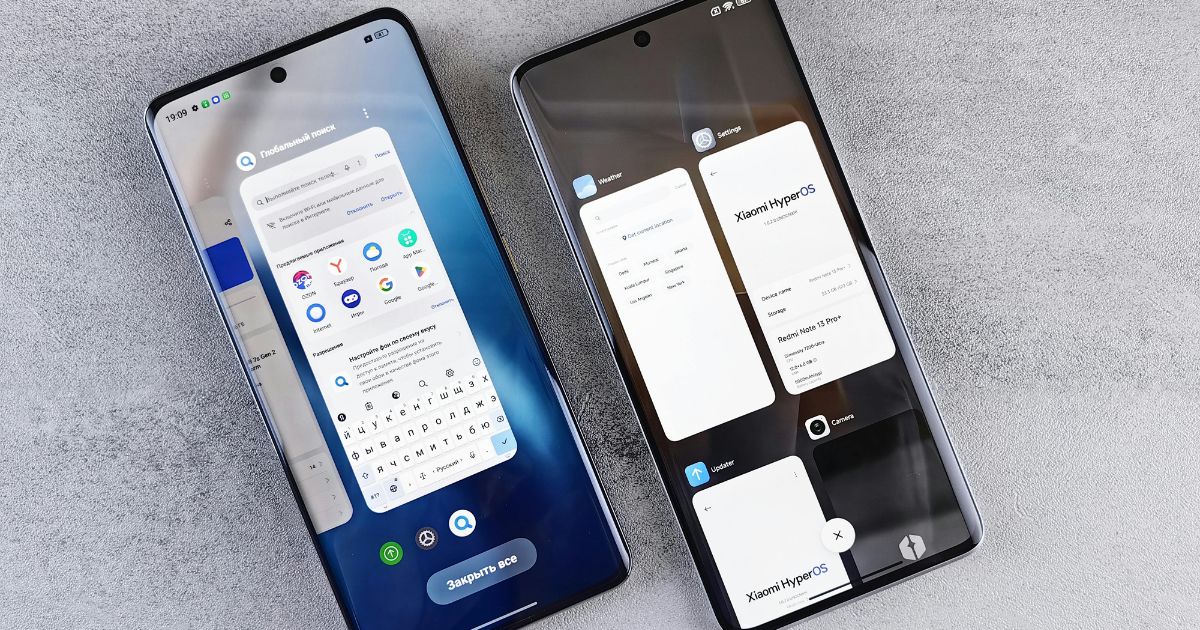In user experience (UX) design, understanding your users is paramount. One of the most effective ways to gain insights into their needs, preferences, and pain points is through user experience research interviews. However, the success of these interviews hinges on asking the right questions.
In this article, we’ll explore strategies for crafting insightful interview questions that not only deliver valuable feedback but also encourage open and honest dialogue.
Whether you're refining an existing application or developing a new product, knowing how to ask the right UX research questions will empower you to create user-centered designs that resonate with your target audience.
What is a User Experience Interview?
A user experience research interview is a one-on-one conversation conducted with a target user to gather direct feedback about their interactions with a product, such as an app or website.
These interviews are designed to uncover users' behaviors, preferences, challenges, and motivations. Unlike surveys or analytics, UX research interviews allow for in-depth, qualitative insights as users share their experiences in their own words.
Conducted during app development or improvement stages, these interviews help researchers understand how well the design meets users' needs and what adjustments may enhance the overall experience.
The Importance of a User Experience Interview
A user experience research interview is vital because it brings valuable insights directly from the people who will use the product. Unlike assumptions or generic data, interviews provide real user perspectives that can reveal unfulfilled needs, unexpected pain points, and motivations that may not be evident through other research methods. This direct feedback ensures that the app or product is designed with the actual user in mind, creating a more relevant, intuitive, and satisfying experience.
For new products, these interviews can help steer design decisions toward what users genuinely need, making early adjustments that save time and resources.
For existing products, interviews uncover what is and isn’t working from the user’s viewpoint, providing a roadmap for targeted improvements.
By learning about users' real-life experiences, UX research interviews help teams build products that resonate with users, increasing engagement, loyalty, and, ultimately, certifying the product's overall success.
User Experience Research Methods
User experience research methods are diverse, each offering unique insights into how users interact with a product. Selecting the right method helps UX teams understand users' needs, preferences, and behaviors effectively. Below are key UX research methods, including quantitative, qualitative, behavioral, attitudinal, generative, and evaluative research.
- Quantitative research: quantitative UX research involves gathering measurable data, often in large quantities, to identify patterns or trends in user behavior. This method uses surveys, A/B testing, and analytics to provide statistical insights, such as click-through rates or time spent on a task. Quantitative research is valuable for understanding broad user behaviors, identifying pain points, and tracking changes over time. While it’s highly scalable and offers objective data, it lacks the depth of personal user feedback.
- Qualitative research: qualitative research is centered on understanding user motivations, feelings, and perspectives. This method uses techniques like interviews, focus groups, and open-ended questions to collect detailed, subjective feedback from users. Interviews, in particular, are effective for exploring users' unique experiences, allowing researchers to ask follow-up questions and dive deeper into specific issues. Qualitative research complements quantitative data by adding context to user actions and uncovering insights that numbers alone can’t provide.
- Behavioral research: behavioral research focuses on observing what users actually do, rather than what they say they do. Methods include usability testing, eye-tracking, and heat maps to monitor interactions in real time. This approach allows UX researchers to pinpoint where users struggle or succeed within the interface, offering actionable insights on design and functionality. Behavioral research is often paired with quantitative methods for a fuller understanding of user interactions with the product.
- Attitudinal research: attitudinal research is focused on gathering users’ opinions, beliefs, and attitudes toward a product. Through interviews, surveys, and questionnaires, researchers gain insight into how users feel about specific features, designs, or functionalities. Attitudinal research is particularly helpful for understanding users’ expectations and preferences, adding a layer of empathy to the product design process. However, because it relies on users’ stated beliefs, it can sometimes differ from actual user behavior, so pairing it with behavioral research provides a more accurate picture.
- Generative research: generative research, also called exploratory research, is conducted early in the design process to discover users' unrealized needs and ideas. Techniques like ethnographic studies, diary studies, and interviews are common in generative research, focusing on users' broader goals and everyday challenges. This method is ideal for uncovering opportunities for new features, designs, or even entirely new products, offering a strategic foundation for development.
- Evaluative research: evaluative research, as opposed to generative research, assesses existing designs or prototypes to measure their effectiveness and usability. This research includes methods such as usability testing, A/B testing, and feedback sessions to evaluate specific product features and identify areas for improvement. Evaluative research helps refine and validate design choices, making it essential for iterative product development and enhancement.
Each method provides unique insights into the user experience, and often a combination of these approaches will yield the most comprehensive understanding of user needs and behavior.
The User Experience Research Process
The user experience (UX) process is a structured approach to creating products that meet users’ needs and provide a smooth, intuitive interaction. This process includes key steps to ensure that the design is user-centered and effective.
- Research and discovery: the process begins with research to understand the target audience, their goals, behaviors, and pain points. This phase includes methods such as competitor analysis, market research, user interviews, and surveys to gather insights into the user’s world and expectations. Defining clear objectives for the product and identifying gaps in existing solutions are essential in this step.
- Define and synthesize: in this step, findings from the research phase are organized and analyzed to create user personas, empathy maps, and journey maps. Personas represent key user segments, while journey maps outline the steps users take to accomplish their goals. This synthesis helps the team understand users’ motivations, frustrations, and interactions with the product, guiding the design direction.
- Ideation and design: with clear insights, the design team begins brainstorming and sketching initial concepts. Wireframes are created to outline the product’s layout and functionality, focusing on the user flow and structure. Prototypes may follow, offering interactive representations of the product. This step often involves iterating on designs based on feedback from team members and stakeholders.
- Testing and validation: usability testing is conducted with real users to evaluate the design’s effectiveness and identify any friction points. Testing allows for feedback on specific features, interactions, and overall usability. Based on test results, the design is refined to improve the user experience.
- Development and implementation: once the design is validated, it moves into development, where developers build the product according to UX specifications. Designers and developers work closely to ensure the final product aligns with user-centered design principles.
- Launch and iteration: after launch, feedback from users is continuously gathered, and any necessary adjustments are made. The UX process is iterative, meaning the team regularly evaluates the product to improve it and meet evolving user needs.
General User Experience Research Interview Questions
When conducting UX research, asking the right questions is essential to uncovering valuable insights into user needs, preferences, and behaviors. The following interview questions are designed to guide meaningful conversations that reveal how users interact with your app, helping you shape a more intuitive and effective user experience.
User Demographics and Needs
- What is your age?
- What is your occupation?
- What area do you live in?
- Why did you begin using this app?
- What expectations did you have before using this app?
- What challenges did you want to overcome with this app?
- What goals did you want to achieve with this app?
Usage Habits
- Which applications do you typically use the most?
- On which device do you normally access this app?
- How frequently do you use this app, and for how long at a time?
- At what time of day do you usually use this app?
- Which tools do you use the most on this app?
App Feedback
- Which features do you like most from the app?
- Which features do you like least from the app?
- Which feature is missing from the app?
- Which feature do you find most useful for your needs?
- What are your biggest pain points while using this app?
Effective User Experience Designer Interview Questions
Once user experience research has been conducted, organizations will need to partner with a UX design company to translate research insights into a user-friendly, impactful design. Choosing the right UX design company can greatly influence the success of the project, so it’s essential to evaluate whether a company aligns with your goals and values. Here are key questions to ask potential UX design partners to assess if they’re the right fit for your organization.
Ask for a User Experience Designer Portfolio
Reviewing a UX designer’s portfolio is a valuable way to gauge their experience, creativity, and understanding of different design elements. A comprehensive portfolio showcases past projects, highlighting the designer’s style and problem-solving approach.
Look for versatility in the portfolio, such as a range of industries or types of projects. Portfolios should reflect successful designs that align with user-centered principles and provide insight into how the company adapts to different clients’ needs.
Additionally, ask about specific design choices made in the projects shown and how those choices benefited the end-users.
Ask About Their User Experience Design Process
Understanding the company’s UX design process is key to ensuring it complements the research already conducted. Ask them to walk you through their process, including discovery, ideation, prototyping, and testing stages.
A structured, well-defined design process demonstrates their commitment to thoroughness and quality.
It’s also helpful to discuss their communication strategy during each stage, ensuring they’ll keep you informed and engaged.
This is also an opportunity to see how the company incorporates user research findings into the design to create a solution that is both innovative and practical.
Their Approach to User Experience Design Wireframes
Wireframes play a crucial role in UX design, serving as the blueprint for the product's layout and functionality. Understanding the company’s approach to creating wireframes can reveal how they prioritize usability and navigation.
Ask how they plan wireframes around user flows and whether they include interactive elements to simulate the user experience.
Find out how they incorporate feedback and iterate on wireframes during the design process. This question can also indicate how well the team balances aesthetics with functionality, ensuring a product that not only looks good but also serves the user effectively.
The Best User Experience Design Principles
Finally, asking about their UX design principles will give you a sense of their values and focus areas in design. Reliable UX design companies should be able to discuss core principles such as usability, accessibility, simplicity, and consistency and explain how they implement these principles in their work. This question helps determine whether their design philosophy aligns with your own and reveals their commitment to best practices and user satisfaction.
For instance, they might prioritize accessibility by following WCAG (Web Content Accessibility Guidelines) or emphasize user engagement by maintaining clear, intuitive navigation throughout their designs.
AppIt’s User Experience Design Services
At AppIt, we pride ourselves on being a premier choice for user experience design, transforming research insights into intuitive, impactful digital products. Our experience in app development is matched by our commitment to user-centered design, which guides every stage of our process—from initial discovery and research to wireframing, prototyping, and rigorous usability testing. By aligning our approach with each client’s vision and user needs, we create interfaces that are both visually engaging and exceptionally easy to navigate.
Our dedicated team works closely with you, integrating feedback at every phase to ensure a custom solution that truly resonates with your audience. Whether you’re looking to design an app from the ground up or enhance an existing product, we’re here to deliver a seamless, memorable user experience that sets you apart.
Ready to elevate your product’s user experience? Reach out to us today to explore how our expertise can help bring your vision to life.








